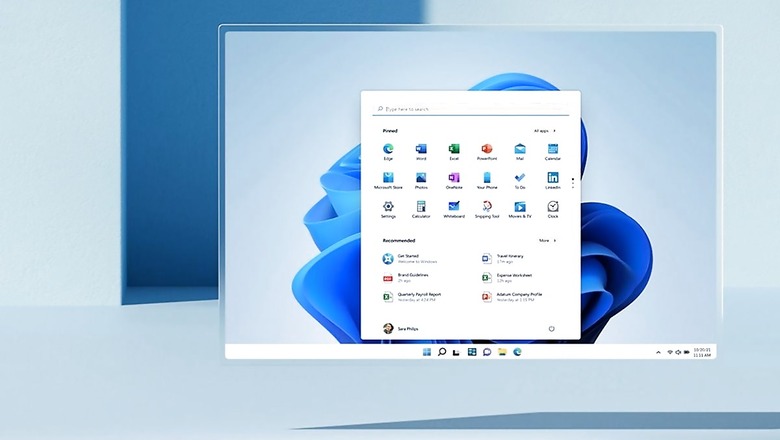
views
There’s considerable chatter sprinkled with a generous dose of skepticism that Windows 11 may not run on all desktops and laptops that already have Windows 10 installed. It stems from the minimum requirements that Microsoft shared for systems that can run Windows 11, and the specific focus on something called TPM 2.0, or Trusted Platform Module, which we have tried to explain here in detail. Simultaneously, the PC Health Check app has also indicated false negatives on many PCs, suggesting incompatibility with Windows 11. Microsoft has acknowledged issues, are pulling the under-prepared PC Health Check app and have promised to reconsider the minimum system requirements needed for PCs, to be able to run Windows 11 when it rolls out later this year. Windows 11 is the biggest update the OS has received, in years, and the first test build has now rolled out for developers.
There is confirmation that the PC Health Check app is indeed being taken off for the time being, and the tech giant says some work needs to be done before it can reach the intended level of detail or accuracy that users would expect. “Based on the feedback so far, we acknowledge that it was not fully prepared to share the level of detail or accuracy you expected from us on why a Windows 10 PC doesn’t meet upgrade requirements,” says Microsoft, in an official post. They confirm that this is a temporary removal of this app and it’ll be available again before Windows 11 releases later this year. “We are temporarily removing the app so that our teams can address the feedback. We will get it back online in preparation for general availability this fall,” they say.
The requirement for a security hardware chip on PCs for Windows 11 to install and run successfully, has meant that PCs that still run the 7th generation Intel Core processors or indeed the AMD Zen 1 chips may be kept out. That is because they do not have TPM 2.0 enabled. This means that assuming Windows 11 will run on all PCs that already have Windows 10 installed and running successfully, would be fallacious. A reconsideration may very well be under way. “As we release to Windows Insiders and partner with our OEMs, we will test to identify devices running on Intel 7th generation and AMD Zen 1 that may meet our principles,” says Microsoft.
The minimum hardware requirements for Windows 11 PCs to be able to run the new OS, albeit after sacrificing some functionality in case you’re just meeting the baseline, include a 1GHz processor, at least 4GB RAM and at least 64GB storage. The system firmware needs to be UEFI and Secure Boot capable, while the graphics card, whether integrated or discreet, needs to be compatible with DirectX 12 or later. Computing devices with screen sizes smaller than 9-inches and resolution less than 720p will not be compatible with Windows 11. These are the larger system requirements that need to be ticked off.
There are further feature specific requirements, that will dictate whether you can run certain Windows 11 functionality or not. For instance, 5G connectivity will require a built-in 5G modem, something we have seen off late with laptops that have built-in SIM slots for LTE connectivity. For Auto HDR for videos and gaming, the display will need to be HDR capable. The Snap three column layouts for multi-tasking require a display with at least 1920 pixels in width. The Presence functionality will ask for a sensor that can detect human distance from device or intent to interact with device while Microsoft Teams calls will need a video camera, microphone and speaker for audio output.
If you are feeling brave enough, Microsoft has released the first Windows 11 preview build today. This will be available via the Windows Insider channel, and is meant for developers to start working with the new OS. It carries the Build 22000.51 and is the first of many expected to roll out in the coming weeks, as bugs are fixed, functionality is tweaked and security as well as performance are knuckled down. Mind you, upgrading from Windows 10 to Windows 11, albeit on PCs that meet the final system requirements check, will be free.
Read all the Latest News, Breaking News and Coronavirus News here.

















Comments
0 comment